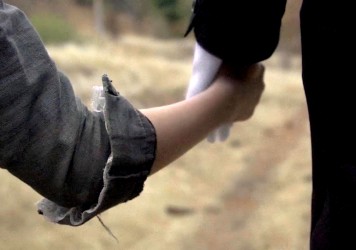The sad untimely death of precocious internet maven Aaron Schwartz is the focus of this chilling doc.
This portrait of prodigy, hacker and activist Aaron Swartz comes at a time when the dark edges of the world wide web are creeping into the public sphere, from Edward Snowden exposing the NSA’s spying to backlash protests in San Francisco over fears that Silicon Valley is forcing out all but the 1 per cent.
Swartz committed suicide in 2013 at age 26 as he was being aggressively pursued by the Obama administration’s justice department for trying to download as much academic material as he could from the servers at Massachusetts Institute of Technology. Neither the university nor the digital library he was tapping pressed charges, but federal authorities saw Swartz as dangerous.
The Internet’s Own Boy, from director Brian Knappenberger, takes us back to the beginning to show Swartz as a precocious kid who taught himself to read at age three and loved teaching everything to others. In footage of a Swartz as a toddler, he demonstrates how to say the alphabet backwards. Once he gets his hands on a computer, things snowball. His younger brother recounts how Aaron would explain to him that programming was magic and with it you could accomplish things that normal human beings couldn’t.
The young wizard built a precursor to Wikipedia. At 13, he was helping develop RSS — the code that allows internet users to track web sites in news readers. When his colleagues learned their combative collaborator was actually a 13-year-old boy, any sense they felt of being deceived immediately turned into a desire to meet this kid. He co-founded Reddit, whose sale to WIRED magazine’s owners Conde Nast turned him and his partners into young millionaires. Aaron turned his back on making money and we see him defiantly wearing a FIRED t-shirt after he stopped turning up at the office.
But while others might have worshipped Steve Jobs, Swartz’s hero was Tim Berners-Lee, the father of the Internet who rather than building a fortune decided the internet had to be free and open so everyone could participate. The film traces Aaron’s journey through the testimony of those he worked with including Berners-Lee, Cory Doctorow and Lawrence Lessig, with whom Swartz helped build the architecture of Creative Commons licensing.
Copyright, we learn, was Aaron’s true passion. It also led to his undoing. As someone who was always questioning, it made no sense to Aaron that court documents — which were public by definition — had to be paid for if they were accessible at all. Meanwhile academic research, much of it tax-funded and notionally created to increase knowledge, was locked away so it could be commodified.
Working through these contradictions might not seem sinister, but his work at MIT soon led to investigations by the FBI, the Secret Service and ultimately the US Attorney’s office. When he committed suicide, Swartz was under a 13-count felony indictment that had him facing a possible 35-year prison term and a $1 million fine. His friends say his only crime was taking too much out of the school library. The prosecutors declined to be interviewed for the documentary. The case never made it to court. But made in the month’s following his untimely death, The Internet’s Own Boy offers the urgent case for the defence.
Published 28 Aug 2014
Here we go into a new dark chapter of the internet.
A heavy watch full of talking heads, but Aaron’s accomplishments keep surprising.
A story that prompts many important questions.

A sinister internet phenomenon is unpacked in this intensely chilling cautionary tale documentary.

Asif Kapadia’s intimate portrait of the late soul singer is too set on driving its own narrative agenda.

Michael Moore’s new movie is an example of a filmmaker with nothing valuable to say.